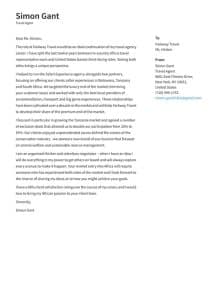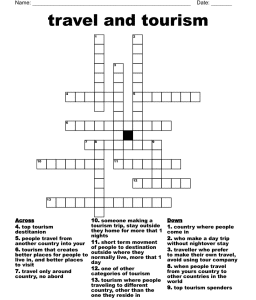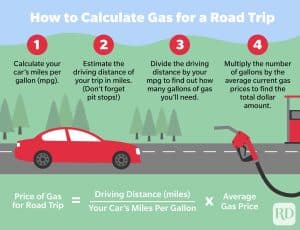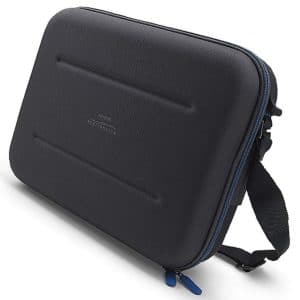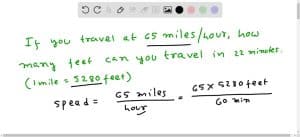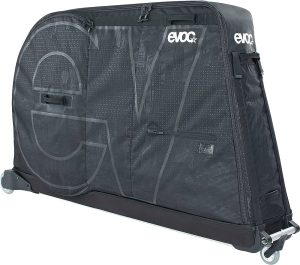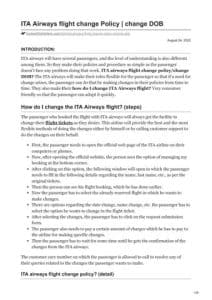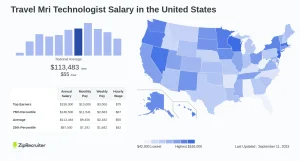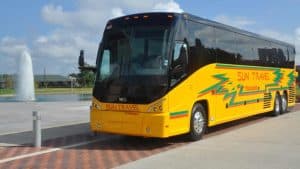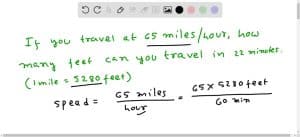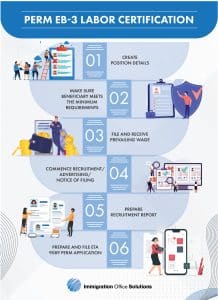Welcome to Hosteliest, your go-to guide for everything travel and hospitality! In today’s feature, we’re delving into the world of travel rewards cards, discussing who are most likely to hold these beneficial pieces. Buckle up for an in-depth journey into the New York Times’ take on it.
Title: Understanding the Likely Holders of Travel Rewards Cards NYT
**Let’s unravel a mystery together.** Do you ever wonder who the likely holders of travel rewards cards (NYT) are? It’s an intriguing question that many of us may have contemplated while planning our travels. This post aims to answer this query and shade light on the beneficiaries of these cards.
Travel rewards cards are a significant boon for frequent travelers, offering perks such as free flights, hotel stays, and more. The likely holders of travel rewards cards NYT should be those who often journey, right? Well, it’s not that simple. We will help you understand who these cardholders are and why they are in a prime position to benefit from these travel rewards.
Who are the Likely Holders of Travel Rewards Cards NYT?
The first thought may be that frequent flyers and business travelers are the primary users of travel rewards cards. But interestingly, these cardholders extend beyond this group. Long-distance commuters, people who value experiences over riches, and young entrepreneurs also form part of the likely holders of travel rewards cards NYT.
Frequent Flyers and Business Travelers
Frequent flyers and business travelers benefit the most from travel rewards cards due to their high frequency of travel. These cards allow cardholders to earn rewards points on airline or hotel expenses, which can be redeemed for free flights or hotel stays. It’s a way of saving money for these individuals who are constantly on the go.
The Experience Seekers
Experience seekers, those who prefer to invest in experiences rather than material possessions, also form part of the likely holders. They are generally younger individuals, eager to explore new cultures, cuisines, and places. For this group, travel rewards cards are a gateway to fulfilling their passion for exploration without going bankrupt.
The Young Entrepreneurs
Young entrepreneurs, especially those involved in startups, also find value in these cards. Startups often have to meet clients or potential investors across different geographical locations, and travel rewards cards ease the financial strain of these business travels.
Long Distance Commuters
Don’t forget the long-distance commuters, those who frequently travel between cities or states for work or personal obligations. These individuals accumulate miles quickly, making them ideal candidates for card ownership.
**Figuring Out the Benefits**
Okay, now that we know the likely holders of travel rewards cards NYT, let’s delve into the benefits reaped by these card owners. Besides the obvious rewards points, cardholders can enjoy priority boarding, access to airport lounges, free checked bags, and even insurance covers on trip cancellation or interruption. Each card comes with its distinctive set of benefits, catering to a wide range of needs and preferences.
The likely holders of travel rewards cards NYT are diverse, extending beyond frequent flyers and encompassing individuals from various walks of life. But a universal thread runs through all these cardholders – their love for travel and the desire to make it more rewarding through these cards. If you’re someone who appreciates the wanderlust lifestyle and yearns to turn your travel expenses into exciting rewards, then becoming a travel rewards cardholder could well be the perfect choice for you.
So, next time you see the ad for a travel rewards card and wonder if you’re suited to benefit from it, remember it’s not just for the frequent flyers and business tycoons. It could be the perfect fit for you too!
Through this article, we have answered the question, ‘who are the likely holders of travel rewards cards NYT?’ Hopefully, this information proves insightful, helping you decide whether investing in a travel rewards card is a fitting choice for your lifestyle. By understanding the benefits, you can make an informed decision about joining the ranks of these cardholders. Happy Traveling!
Unraveling the Profiles: Who are the Likely Holders of Travel Rewards Cards?
Unraveling the Profiles: Who are the Likely Holders of Travel Rewards Cards?
In the Hotels and Travel industry, one of the most compelling marketing tools has always been travel rewards credit cards. Offered by various financial institutions in partnership with airlines and hotel chains, these cards have become a staple for many travelers who look forward to accruing points or miles that can be redeemed for future travel. But who exactly are these likely holders of travel rewards cards?
The usual profile of travel rewards cardholders include frequent travelers, who often take trips for both business and leisure. These individuals find the perks, such as free night stays, seat upgrades, and airport lounge access, relevant and attractive.
Next up are the affluent individuals and families. Given that travel reward cards often come with higher annual fees, they are usually marketed towards those with high incomes. These cardholders see value in benefits like concierge services, hotel status upgrades, and premium travel insurance.
Another group of likely cardholders are the deal finders. These are individuals who are savvy in hunting for discounts and optimizing the use of reward points. They often scrutinize the earning and redemption rates of different cards to get the most bang for their buck.
Moreover, young professionals also form a significant segment of travel reward card holders. With more discretionary income and an inclination towards exploring the world, this demographic finds travel rewards cards beneficial for their lifestyle.
Lastly, retirees who spend their time traveling might also be attracted to these cards. Having ample time at hand, they appreciate the convenience and benefits that these cards offer.
Thus, while there may be a diverse group of people who hold travel rewards cards, their common thread lies in their love for travel, their financial capability, and a desire to get more from their spending.
Understanding the Demographics of Travel Rewards Card Holders
When looking at the likely holders of travel rewards cards according to a New York Times report, it’s crucial to understand the core demographics. These individuals are typically from the middle to the upper-income bracket who frequently travel for business or pleasure. They have a high credit score and don’t shy away from annual fees if the benefits outweigh the costs. A significant percentage is also tech-savvy and appreciate the convenience of digital banking and transactions.
The age range widely varies from millennials to baby boomers, however, this trend is slowly shifting towards younger generations due to their propensity to travel and embrace digital finance solutions. Understanding this demographic profile can help banks and credit card companies tailor offerings, and refine their rewards program to attract more users.
The Value Proposition of Travel Rewards Cards
Travel rewards cards offer numerous benefits that appeal to frequent travelers. Points and miles earned from everyday purchases can be redeemed for flights, hotel stays, upgrades and luxury travel experiences. Some cards also provide value-added benefits like travel insurance, airport lounge access, free baggage checks, or zero foreign transaction fees that further enhance the traveler’s experience.
In addition, many cards leverage partnerships with airlines and hotel chains to provide exclusive deals and offers. The allure of these privileges and rewards are a significant reason why many travelers opt to hold and use travel rewards cards.
Impact of the Pandemic on Travel Rewards Cards Usage
The COVID-19 pandemic has drastically affected global travel causing many cardholders to reassess their needs and usage of travel rewards cards. Despite this, many banks and credit card companies have pivoted their strategies to retain customers.
Many have expanded the definition of ‘travel’ to include local experiences and staycations. Others have increased the earn rate on everyday spending categories like groceries or home improvement. Further, some are offering flexible redemption options allowing points to be used for statement credits, charitable donations, or shopping with their retail partners.
In the long run, card issuers that can adapt to changing travel patterns and consumer behavior are likely to retain their appeal among frequent travelers.
Frequently Asked Questions (FAQ)
“Who are the most likely holders of travel rewards cards according to the New York Times in the context of Hotels and Travel?”
According to a report by the New York Times, the most likely holders of travel rewards cards are generally consumers who travel frequently for business or pleasure. These include corporate travelers, jet-setters, and frequent vacationers. They find value in these cards because of the generous perks and benefits such as free hotel stays, airline miles, priority boarding, complimentary upgrades, and access to airport lounges. It’s important to note that such cards tend to be most beneficial for those who pay off their balances in full each month, given the high interest rates associated with many travel rewards cards.
“What characteristics do the New York Times suggest are common amongst holders of travel rewards cards when it comes to Hotels and Travel?”
The New York Times, in its discourse on hotels and travel, highlights certain common characteristics among holders of travel rewards cards. These characteristics are primarily centered around frequent travel and the efficient utilization of rewards for luxuriant travel experiences.
Frequent Travel: According to The New York Times, most holders of travel rewards cards are often those who travel frequently, both for personal and professional reasons. They are typically globetrotters who harness these resources to optimize their travel experiences.
Savvy about Maximizing Rewards: These individuals are usually clued-in about how to maximize their rewards. They are strategic about their spending and are well-versed in when and where to use their cards to accrue maximum points.
Luxury and Comfort Seekers: The report also suggests that cardholders are typically interested in comfort and luxury, using their rewards to upgrade their flights, accommodation, or access exclusive airport lounges.
Plan Ahead: They tend to be meticulous planners who value the flexible redemption options provided by these travel rewards cards. This allows them to plan their trips in detail and leverage their rewards effectively.
Awareness of the Latest Deals and Offers: Lastly, The New York Times asserts that cardholders are generally alert about promotional offers and are quick to capitalize on them. They keep themselves updated on the latest deals and special bonuses to get the best value from their cards.
“How does having a travel rewards card impact the hotel and travel experience as per the views of the New York Times?”
According to the New York Times, having a travel rewards card can greatly enhance your hotel and travel experience.
Firstly, a travel rewards card often comes with benefits such as free or discounted flights, upgrades to business or first-class, priority boarding, free checked bags, and access to airport lounges. These advantages can make your journey more comfortable and stress-free, allowing you to start your trip on a positive note.
When it comes to hotels, the rewards can be equally appealing. A travel rewards card may provide free or discounted nights, room upgrades, late check-out, early check-in, and other VIP perks. Some cards even offer car rental insurance, which can save you a significant amount of money and hassle if you plan to hire a vehicle during your trip.
However, the Times also warns that the exact benefits depend on the specific card, as different credit cards offer different reward programs. Therefore, it’s always essential to read the fine print before applying for a travel rewards card.
Also, remember that these cards generally require good to excellent credit, and some come with high annual fees. Furthermore, most of these cards rely on a point-based system where you earn points for every dollar spent, which are then redeemable for travel-related purchases. However, the value of these points can fluctuate based on the card issuer’s policies.
In conclusion, while a travel rewards card can undoubtedly make your hotel and travel experience more delightful and less pricey, it’s necessary to carefully consider the potential costs and to choose the right card that suits your travel habits and lifestyle.
In conclusion, likely holders of travel rewards cards are a significant demographic in the travel and hospitality industry. These individuals value experiences and exude a passion for exploration, often venturing further from home and staying longer than their counterparts without reward cards.
The New York Times offers an interesting perspective on this group, highlighting their influence on travel trends and the importance of catering to their unique needs. From loyalty programs to bespoke offerings, it is crucial for hotels and travel companies to consider the specific preferences and behaviors of these customers to leverage growth opportunities.
Travel rewards cards, according to NYT, are not just useful tools for travelers but also a window into the future of travel. They indicate where the industry might be heading, with more emphasis on personalization, customer experience, and sustainable practices.
The use and popularity of these cards will likely continue to rise, highlighting the need for businesses in the industry to adapt and evolve. Remember, the key to success in the dynamic world of travel and hospitality is understanding and meeting the demands of your guests, especially those who hold travel rewards cards.
Error: El post actual no se encuentra en el array de posts.




















